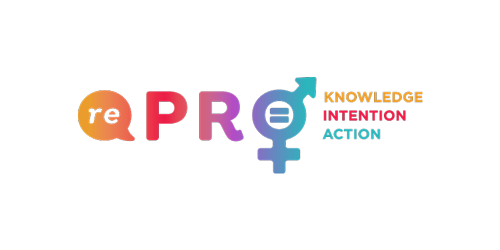Sexual fantasies from a teenage girl’s perspective
“My Year of Dicks,” based on the memoir by Pamela Ribon and directed and animated by Sara Gunnarsdóttir, brilliantly and humorously reveals the inner thoughts of a teenage girl determined to lose her virginity.
It’s refreshing to see teenage angst about sex from the perspective of a girl. Much more commonly, we see films about sex from the male perspective. Pam, the determined teenager, richly imagines what having sex will be like. Her fantasies are elaborate and involve idyllic scenarios that are alternately beautiful, thrilling, slightly dangerous, consensual and loving.
Her actual experiences are uniquely disappointing and fall far short of the mark. I found the film to be quite thought-provoking. Here are some of the questions that arose as I watched:
- Is it surprising that we see the film from the viewpoint of a 15-year old girl? If so, why?
- Were you surprised she is 15? Does that seem “too young?”
- What has influenced Pam and given her ideas about what sex will be like? (Clearly not her parents!) Are these reliable, realistic sources?
- If Pam had had sex with any of the boys in in the first four chapters, how do you think she would have felt? Relieved? Regretful? Happy? Disappointed? Satisfied? Deceived? More knowledgeable? Coerced?
- Why has the concept of virginity persisted? Why is such value placed on virginity in some cultures?
- Why do teens talk so much about and place so much emphasis on losing their virginity?
- Is the entire concept of losing one’s virginity exclusively heteronormative? How do teens who identify as LGBTQ+ think and talk about sex?
- Assuming Pam means having vaginal intercourse when she discusses losing her virginity, why is this act more intimate or meaningful than oral sex, for example?
- What did you think about the sex talk Pam tried to have with her mother and ended up having with her father? How do you think Pam felt after those “conversations?” Shame? Humiliation? Confusion? More determined than ever to never mention anything close to sex with either of her parents?
For me, these questions come back to how teens need access to comprehensive sexuality education and frank, frequent and accurate discussions with their parents or another trusted adult. Whether you think 15 is too young or not, teens are thinking and talking about sex. Some of them are sexually active.
Sex education is required in just over half of the states in the U.S., and what that term means in different states is widely variable. Here are a few surprising statistics about sex ed in the U.S.:
–It’s a total patchwork, left up to individual states.
–29 states and D.C. require sex ed.
–38 states require HIV education (but how do you provide HIV ed without talking about sex?).
–16 mandate abstinence-only programs.
–13 do not require that sex ed or HIV programs be medically accurate(?!?).
–6 states (Florida, Texas, Louisiana, Mississippi, Oklahoma and North Carolina) explicitly require instruction that discriminates against LGBTQ students.
Abstinence-only sex education is not sufficient and can be harmful. Social conservatives frequently argue that providing kids with information about sex promotes earlier initiation of sex or promiscuity. However multiple studies over decades from multiple countries show no evidence that either assertion is true. Abstinence-only sex education does not lower teen pregnancy or birth rates, and it leaves kids without accurate information about contraception and STIs. It does not emphasize consent and communication skills in relationships and instead promotes fear and shame. It frames premarital sexual activity as wrong and risky and promotes waiting until marriage as the only way to avoid negative outcomes, ignoring the fact that marriage does not make one immune to extra-marital sexual activity, STIs or unintended pregnancy.
And the sex talk Pam tries to have with her mother and then is forced to have with her father? Yikes! (Although brilliantly animated and hilarious, truly masterfully done!) I would like to think it’s obvious that this is in no way how it should go when a kid asks a parent a question about sex. The mother resorted to anger and name-calling. The father was weirdly invasive and then just wrong and then recommended … just sticking with oral sex in the end?
Unfortunately, this is how some parental sex talks go. Given this, it’s crucial that all kids have access to comprehensive sex education (CSE) in school. Learn more about it through the links below.
A definition of comprehensive sexuality education
Learn more about the content and aims of CSE from this brief but thorough handout, which includes the curriculum’s seven essential components. (CSE) recognizes that information alone is not enough. Young people need to be given the opportunity to acquire essential life skills and develop positive attitudes and values.” (Guttmacher Institute)
https://www.guttmacher.org/sites/default/files/report_downloads/demystifying-data-handouts_0.pdf
Myths and facts about comprehensive sex education
Proponents of abstinence-only education claim that CSE encourages teens to have sex, teaches young children about the mechanics of sex, and undermines parental authority. This rundown debunks these and other common myths and lists the receipts (i.e. the research).
https://www.advocatesforyouth.org/wp-content/uploads/storage/advfy/documents/cse-myths-and-facts.pdf

